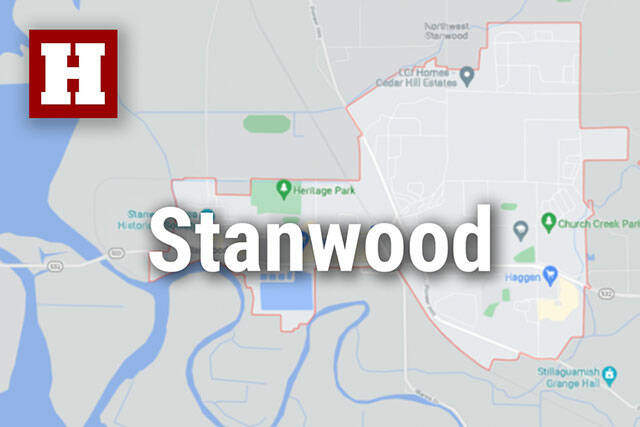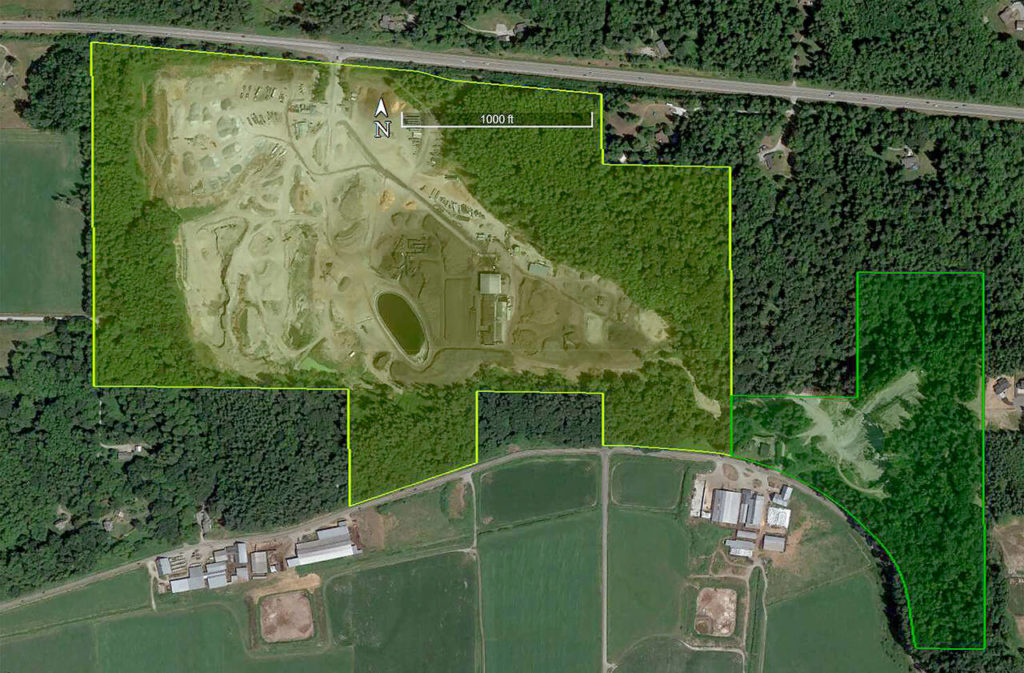STANWOOD — A Stanwood firm has received the go-ahead to double its composting operation off Highway 532, a move that will make it the third-largest commercial composting facility in the Puget Sound region.
Lenz Enterprises Inc. obtained approval for the expansion from the Puget Sound Clean Air Agency this month, nearly three years after the company applied for a permit.
“They can build with it,” said Steve Van Slyke, the agency’s director of compliance. “It is a notice of construction, and with the approval, they can go forward.”
Jason Lenz, vice president of the family-owned company, declined to comment on the permit.
The decision didn’t surprise residents who opposed the expansion and expressed concerns it would smell.
“Yet again Puget Sound sides with the ‘Big Corp,’ completely ignoring Stanwood and local Snohomish County residents who stood up to voice their concerns,” Peggy Kitting said in an email. “This is more than just smells of a farming community. This is ammonia we are smelling! If you don’t smell this odor, well, you are fortunate to not be in its path.”
Another resident, Sid Roberts, raised concerns with regulators in April. Roberts is now the mayor.
“The only thing I will say is that the odor has been less frequent over the last year and my hope, as a private citizen, is that the Puget Sound Air Quality Agency will do their job as the regulator,” he wrote in an email.
The decision can be appealed to the Pollution Control Hearings Board. It must be filed by Feb. 12.
The new permit allows Lenz to accept up to 150,000 tons a year of compostables like food waste, yard debris and animal manure, twice what is now allowed. Currently, the material is primarily used to make gardening and landscaping products. It’s smaller than composting facilities in Everett and Maple Valley operated by Cedar Grove.
With the expansion, Lenz will increase the facility’s operating hours from the current six hours a day, Monday through Friday, to 10½ hours a day — 7 a.m. to 5:30 p.m. — Monday through Saturday. Overlapping shifts of workers would be deployed to deal with the increase in material needing to be moved into pretreatment.
But the firm vowed the number of truck trips on and off the site will not change. Regulators imposed a permit condition to make sure it doesn’t.
Company officials have said they will replace smaller “packer-trucks,” which carry only a few tons of material, with trucks capable of delivering up to 30 tons. There will be a maximum of 77 truck trips a day, covering the total of those bringing in feedstock plus those leaving with compost deliveries.
According to documents, the company will expand areas used for each stage of the composting process and install two new biofilters to capture emissions.
In the first stage, the area where material is aerating would be more than doubled. And 177,000 square feet of paved area would be added for the second phase of composting, in which piles of material are turned. With more space for aerating and pile turning, the time spent in the curing process should be shortened and the potential for odorous emissions decreased.
Lenz also will switch from a mass bed system, where material aerates in large piles, to “windrow,” where material is spread in long rows with valleys between the rows. Those rows, or beds, must be turned at least once every seven days under the permit.
And Lenz must increase the capacity of the air processing system in the tipping building where fresh organic material is deposited. This, too, is intended to prevent smells from escaping.
Odors are the target of several conditions in the permit.
One expressly says: “No detectable odor associated with the Lenz composting facility is allowed at or beyond the facility’s boundary.”
Another requires the company conduct a daily inspection of the entire facility “to monitor along and outside the property line for detectable odors from the facility.” It also must keep a log of complaints and investigate them within one working day.
Under the permit, Van Slyke said, clean air agency inspectors could patrol the perimeter, and if they smell something, they can initiate action on their own rather than wait for a citizen complaint.
Kitting is one of several residents who have filed complaints in the past.
“Plain and simple fact: Lenz is responsible, they are allowing smells to drift off their site and enter our property,” she said. “Now that Lenz has been approved to expand it will only get worse by harming our environment and people’s health.”
The Lenz composting operation is within the family-owned company’s sand and gravel mine at 5210 Highway 532.
Composting began there in 2008. Initially, the company was permitted to accept up to 30,000 tons of organics a year.
In 2014, Lenz received permission under a temporary permit to expand and process up to 75,000 tons per year of organics, which are primarily made into a product for gardening and landscaping. A vast majority of that material comes from the city of Seattle, though some comes from Snohomish County and other cities in King County.
Lenz applied for the permit to expand in February 2019. It supersedes the one issued in 2014.
Meanwhile, the Snohomish Health District has determined Lenz complied with current limits on the amount of tonnage it can accept each year.
In December, the district launched an investigation after Cedar Grove filed a complaint alleging Lenz took in roughly 108,000 tons in 2020 — 33,000 tons more than allowed.
Aran Enger, the district’s environmental health specialist, made unannounced visits to the facility and reviewed tonnage records for 2020. He concluded in a report Dec. 9 that the allegations were unfounded.
Cedar Grove argued that if you add up tonnage reportedly delivered to the Lenz facility under different contracts, it exceeded 75,000.
Records submitted by that firm and collected independently by The Daily Herald show in 2020 the city of Seattle shipped 70,748 tons of organic waste to Lenz and Snohomish County sent 7,917 tons of yard debris. Waste Management reported trucking 30,241 tons of yard trimmings from its Eastmont Transfer Station. Several cities in King County send their feed stock to the transfer station.
In an email, district spokesperson Heather Thomas addressed the apparent discrepancy.
“Non-compostable materials are not counted towards the compostable tonnage reports,” she wrote. “… Staff have verified that Lenz has not composted materials in excess of the 75,000 tons allowed.”
Meanwhile, the Puget Sound Clean Air Agency is carrying out its own investigation because Cedar Grove raised the same concerns in the permit review process.
Jerry Cornfield: 360-352-8623; jcornfield@heraldnet.com; Twitter: @dospueblos.
Talk to us
> Give us your news tips.
> Send us a letter to the editor.
> More Herald contact information.


























